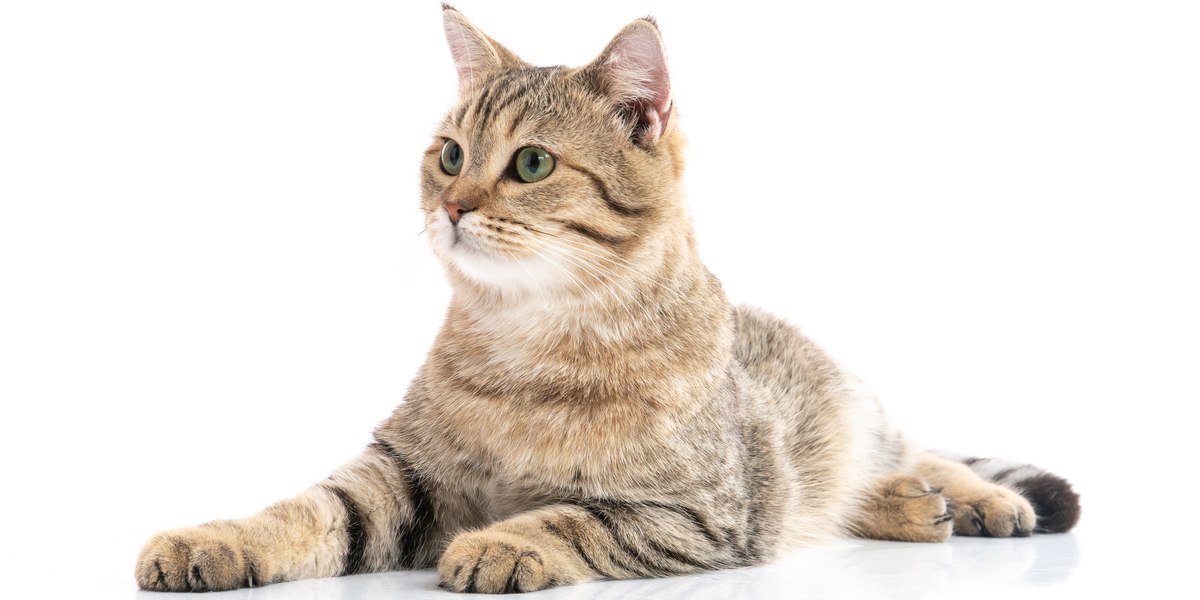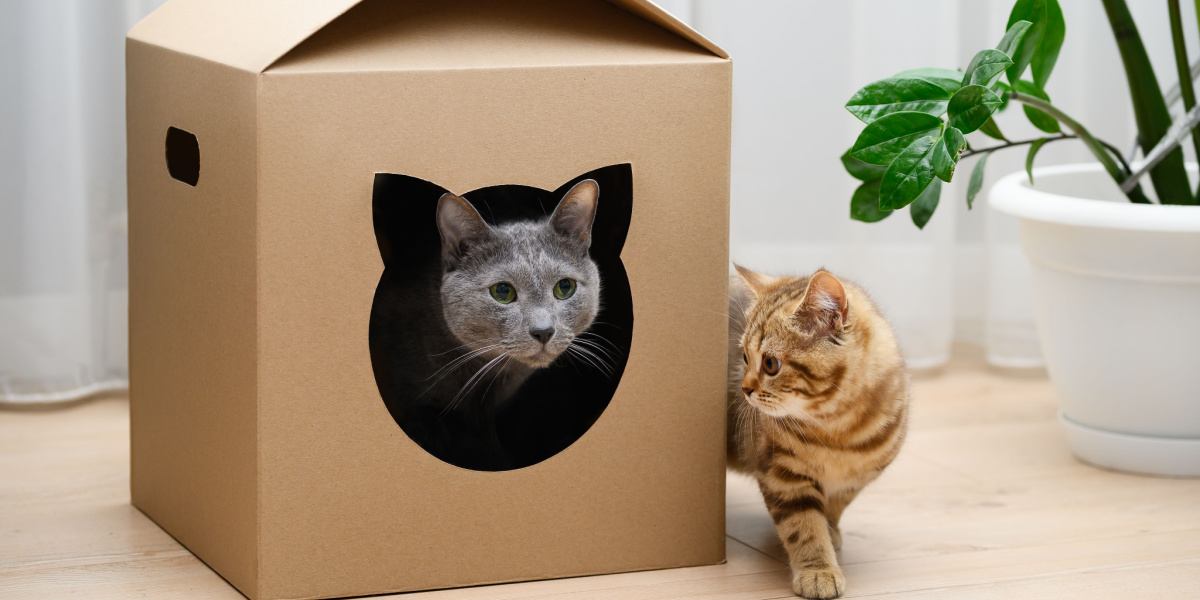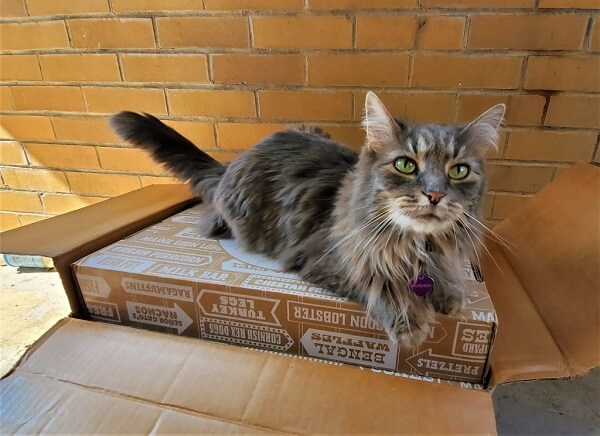Why Is My Cat Pooping On The Floor?
This page contains affiliate links. We may earn money or products from the companies mentioned in this post through our independently chosen links, which earn us a commission. Learn More
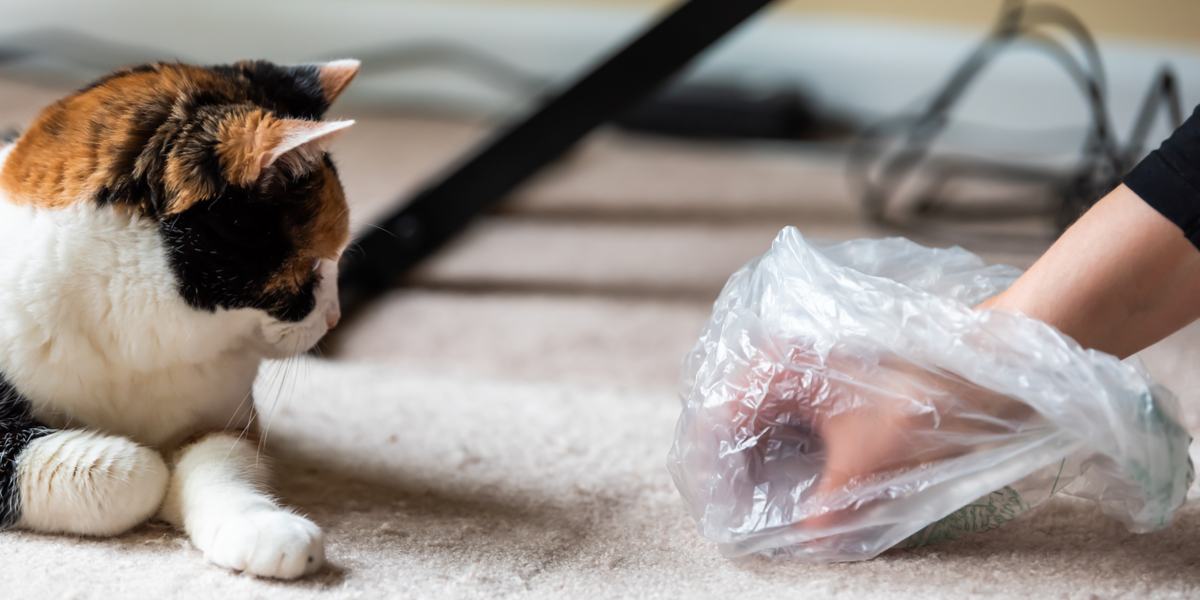
Cats are very clean pets and naturally use their litter box or toilet outdoors. In fact, most kittens/cats don’t require any toilet training at all and automatically want to use the litter box to toilet in and use the litter to cover their pee and poop. So why do cats sometimes poop outside of their litter box e.g. on the floor? We’ll go through all of the possible reasons for why this might be happening.
What Is Normal Toileting Behavior?
Before we start looking at toileting problems, we should acknowledge what is normal toileting behavior for a cat and know what they prefer. Normal toileting behavior is to use a litter box or an area outdoors (usually a soft composted flower bed). Cats dig in the litter or soil, pee or poop and then cover this over with the litter or soil. They can spend a long time covering this over.
Covering their pee and poop has a few functions. We know that cats are very clean pets but this isn’t the main reason for this. The main function of covering over their pee and poop is a natural instinct they developed in the wild. It masks their scent so that they don’t attract unwanted attention from other cats/animals and can go unnoticed. This is an innate behavior and any litter box or toileting set up for a cat should allow this natural behavior to occur (dig, toilet, and cover).
So Why Isn’t My Cat Pooping In Their Box?
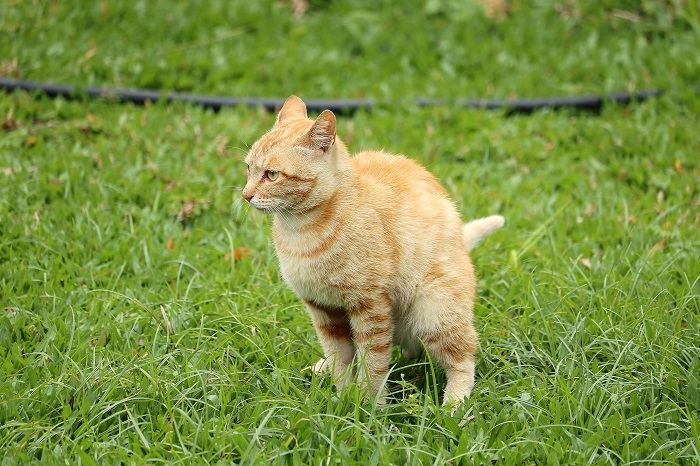
You may have noticed your cat pooping on the floor or in another area in the house instead of their litter box or outside. There are many reasons why this might be happening and it’s important to get to the bottom of the problem. Cats aren’t ‘unclean’ or ‘lazy’ or trying to annoy you by pooping outside of their box, there is a genuine reason to why this is happening.
Let’s go through some of the reasons for why this might be happening;
Litter Box Issues
One of the main reasons that I find is that there’s an issue with the litter box. There are a few points about litter boxes that are really important or you might find that your cat won’t use them.
First of all you need enough litter boxes. The rule of thumb is one box per cat plus one extra, in different areas of the house. Litter boxes should be big enough for a cat to turn around and 1.5 times the length of the cat, anything less than that is too small. Make sure that your litter boxes are big enough depending on the size of your cat.
Location of the litter box is another important factor. You wouldn’t want to use the toilet in a busy area of the house with people around would you? Neither would your cat. Make sure that litter boxes are in quiet, private areas and avoid having them in high traffic areas e.g. busy TV rooms, hallways etc.
Unsuitable litter substrate is another reason why they might not use their litter box. Cats prefer unscented, clumping, fine, soft litter substrate. Their paws are very sensitive and sometimes larger pieces of litter substrate can be sore on their feet. This needs to be scooped out daily to keep it clean, as cats are unlikely to use a litter box that’s very soiled.
Do you have a covered or uncovered litter box? Some cats like the privacy of hooded litter boxes but others prefer to have uncovered litter boxes so that they can watch their surroundings. This is very important in multi-cat households. If your cats don’t always get along, they can use a hooded litter box as an ambush site e.g. if one cat is using the litter box, the other cat will sit by the doorway blocking their exit from the box.
Stress
Stress can come in many different forms for a cat and it can cause changes in toileting behavior. Any changes in routine or in the house can affect cats using their litter box. For example; if there’s a new baby in the house and they’re crying a lot in the living room and the cats litter box is in the same room, it’s likely that the cat may not use their litter box in order to avoid a stressful situation.
For cats that toilet outdoors, if there’s a new cat in the neighborhood that’s bothering your cat they might be too fearful or anxious to toilet outdoors and choose to toilet inside instead. This is quite a common problem with outdoor cats.
Stress can cause issues with urinating (FLUTD) and defecating (diarrhea, constipation) and this might cause your cat to toilet outside the box or not outside. For example, a cat with cystitis needing to urinate frequently might not be able to make it to the litter box in time and might urinate around the house instead.
Marking (Middening)
As we’ve mentioned above, cats prefer to cover their poop in order to mask their scent to not attract attention from other animals. However sometimes if cats are feeling territorial/stressed/ threatened, they will mark their territory by leaving scents or odors around the place.
Usually this is by urine spraying but it can also be in the form of middening. Middening is when cats purposefully leave their poop uncovered so that the smell is not masked and that other cats will detect it. It sends a message to other cats and is usually a territorial behavior.
Health Issues
As I briefly mentioned above, any issues with urination (e.g. urinary tract infection) or defecation (diarrhea, constipation) can affect how a cat toilets. With these conditions, if the need to pee or poop is urgent, they might not make it to their litter box or outside and they might have an accident on the floor.
Cats that have arthritis or any other mobility issue, might struggle to get to the litter box or go outside if it’s far away or hard to get to e.g. upstairs. They might also struggle to use litter boxes that have high sides and ones that are difficult to step into.
Any condition that is causing lethargy, pain or stress is very likely to impact toilet behavior and it might mean that your cat doesn’t use their litter box.
Tips To Help Your Cat
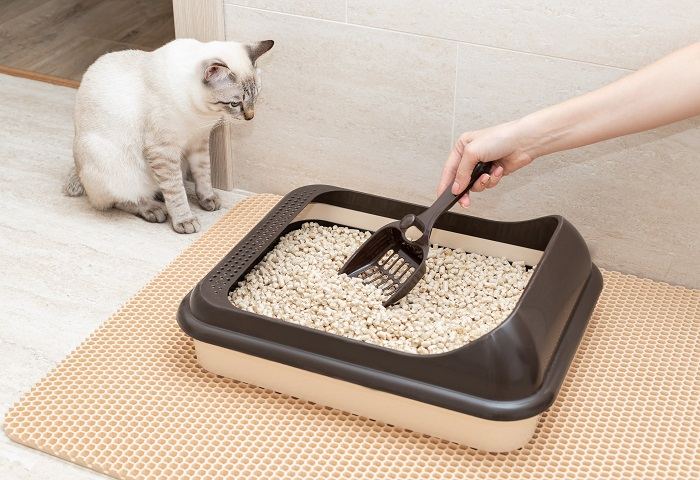
If your cat isn’t using their litter box, it’s important to figure out why. I have a few tips that might help identifying and fixing the problem.
- Ensure that you have enough litter boxes for the amount of cats that you have – 1 box per cat plus 1
- Litter boxes need to be big enough for your cat’s size and ideally have unscented, fine, clumping litter that is deep enough for your cat to dig and cover their pee and poop easily.
- Litter boxes should be located in a quiet location of the house and on different floors if the house is multi-story.
- Scoop out the litter boxes daily and ensure that they’re clean.
- If there’s any changes in the house, ensure that your cat has enough resources (food, water, beds, litter boxes, scratching posts etc.) that are easy to get to. Consider the use of a synthetic pheromone plug in diffuser to help relax your cat and help them adapt to changes. In the case of a new baby, cat or dog make sure that you introduce them slowly and appropriately.
- If your cat toilets outdoors and you think that a new cat in the neighborhood is preventing them from toileting outdoors, introduce litter boxes indoors so that your cat can toilet indoors if they feel safer.
- If there’s issues between cats in the household that’s causing territorial marking (middening) consider using synthetic pheromone diffusers, providing plenty of resources, providing hiding and escape areas and consider using a behaviorist.
- If your cat has any mobility issues, you need plenty of litter boxes in different areas including on different floors if applicable. Consider cutting out a side of their litter box so that they don’t need to step into the box.
- Address any health related issues by visiting your veterinarian and getting your cat the appropriate treatment. Health related toileting issues will usually resolve once the cat has been treated.
If you aren’t sure why your cat’s toileting behavior has changed, I’d recommend an examination with your veterinarian to rule out health issues. Cats are very good at hiding illnesses so it’s better to rule this out before focusing on behavioral causes.
What NOT to do
I know it can be frustrating if your cat is peeing or pooping around the house, but you must understand that there’s always a reason for why they’re doing this. They aren’t doing this to annoy you and it’s something that they can’t help. It’s really important to NEVER punish your cat for this behavior.
This includes shouting at them, using water sprays, putting their nose in it etc. Punishments will likely make your cat fearful of you and it isn’t a solution to the problem. It’s much better to focus on the cause of the problem and to try and fix it.
Conclusion
Cats are usually super clean when it comes to bathroom habits. If your cat is suddenly pooping on the floor or peeing outside the litter box, it’s likely that they’re trying to tell you something. There are many reasons for this ranging from litter box issues to health conditions and it’s important for you to find the cause so that you can help them.
Frequently Asked Questions
How can I get my cat to stop pooping on the floor?
You need to find out why your cat is pooping on the floor in order to stop the situation from happening. Litter box issues are a common reason along with stress and health conditions. Book a veterinary visit if you’re not sure why they’re doing it.
Do cats poop on the floor out of spite?
No, cats don’t poop on the floor out of spite. There is always a genuine reason for why they’re doing this. Common reasons are litter boxes problems, stress and health conditions.
Why is my cat suddenly pooping outside the litter box?
There are many reasons for this. If it’s a sudden problem, check if there have been any recent changes in the house e.g. new baby, building work, new cat. Book a veterinary check up if you think your cat is unwell as this may be causing the problem too.
Why is my cat pooping on the floor but peeing in the litter box?
Sometimes cats do this if they’re unhappy with their litter box situation. Ensure that you have enough litter boxes and that they’re big enough for your cat. Cats prefer unscented, fine clumping litter. Litter boxes need to be cleaned daily.






